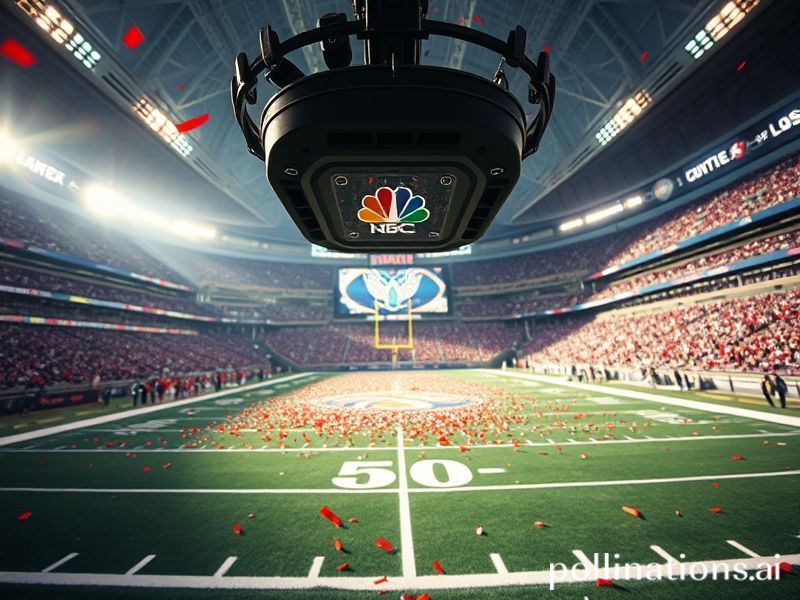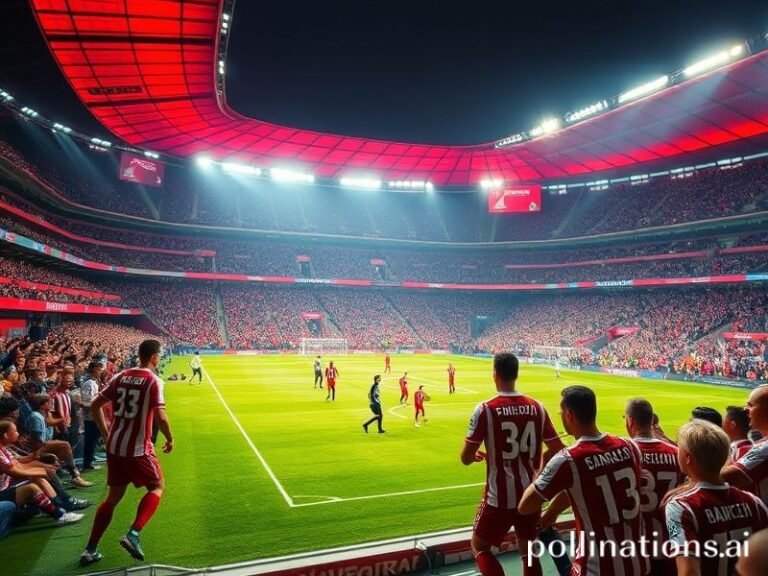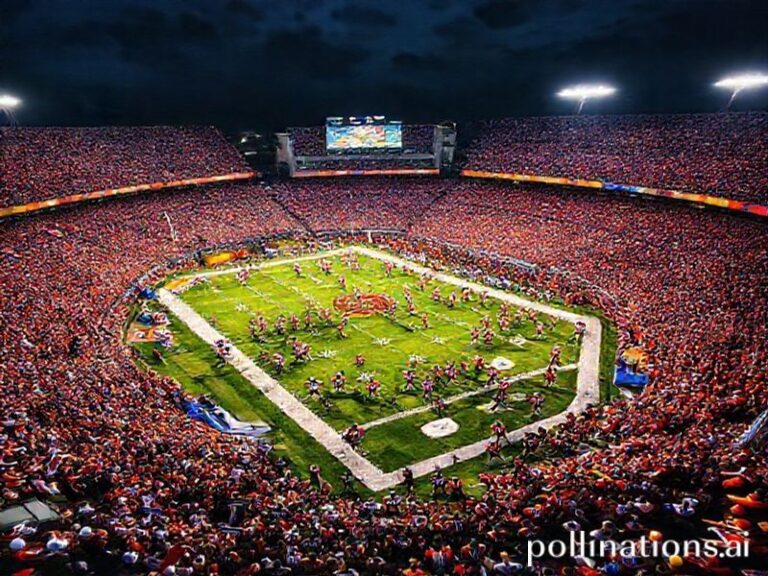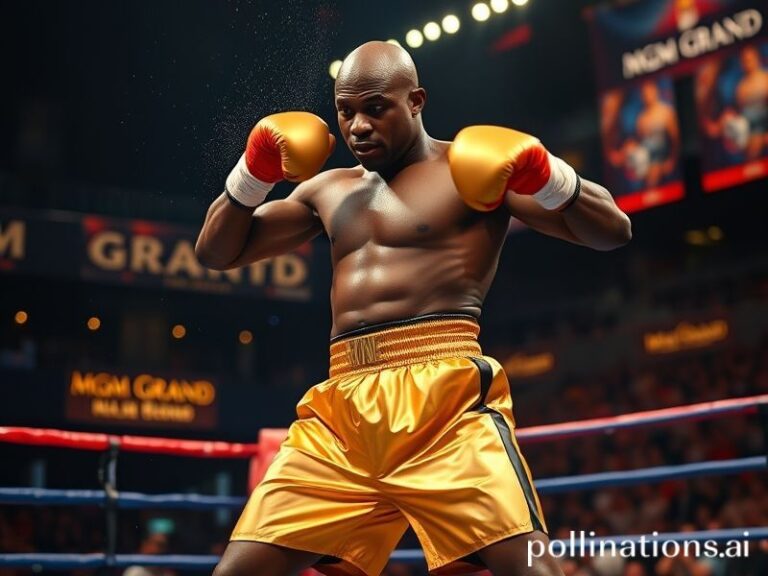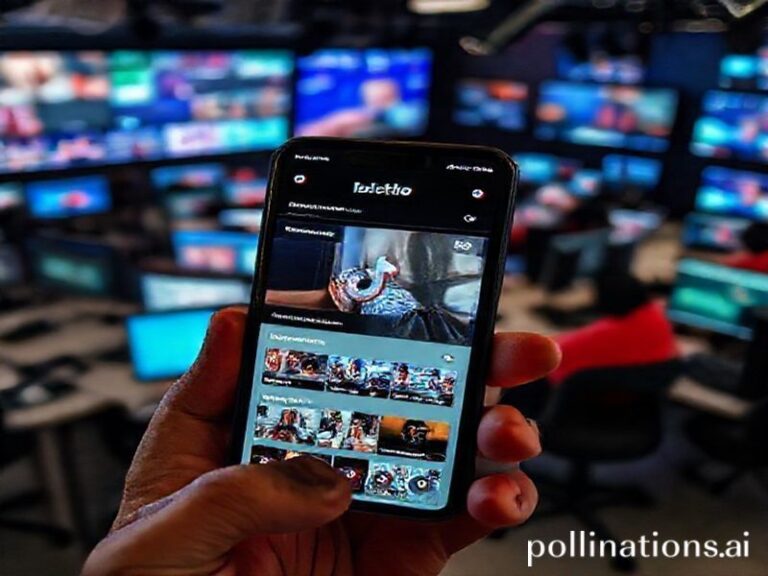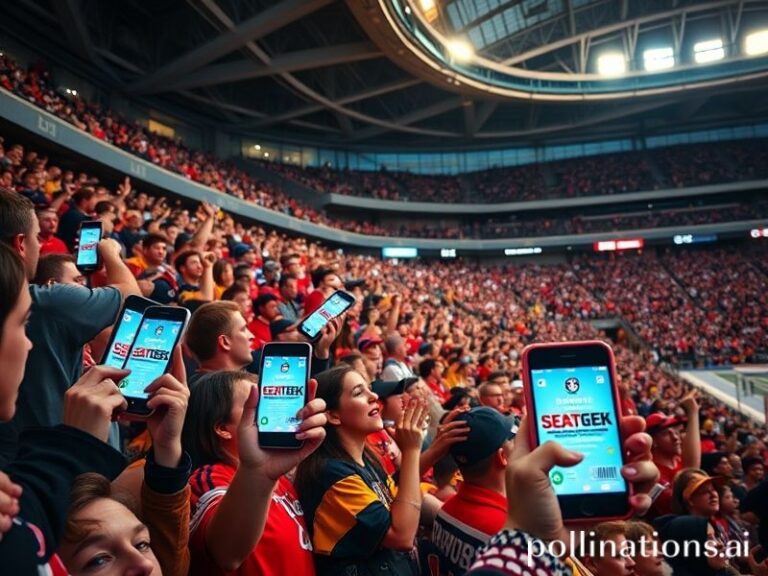From Premier League Dawn Patrol to Olympic Amnesia: How NBC Sports Sells the World Back to America—One Nap-Friendly Broadcast at a Time
NBC Sports, the Peacock’s brash younger cousin who insists on showing up to every global shindig wearing a tailored blazer and a foam finger, has spent the last three decades perfecting the art of selling Americans the rest of the planet’s favorite pastimes—then apologizing afterward for the commercials. From the Tokyo Olympics’ cardboard beds to Qatar’s air-conditioned stadiums, the network has become the Western Hemisphere’s official interpreter of events it never quite understands, like a tipsy translator at the U.N. who keeps muttering “this is fine” while the building burns.
Consider the Premier League, that weekly orgy of tribal chanting and questionable hair transplants. NBC pays roughly a billion dollars for the privilege of piping it into U.S. living rooms at dawn on Saturdays, so that half-awake subscribers can watch men in fluorescent boots run in geometric patterns while British commentators speak as if describing a minor theological dispute. The network’s masterstroke is to pretend this is perfectly normal American behavior—like tailgating at 5 a.m. with oat-milk lattes—and not a sign that late-stage capitalism has finally weaponized insomnia.
Then there’s the Olympics, humanity’s rotating carousel of geopolitical passive-aggression. NBC’s strategy is to wrap every discus throw in a 12-minute human-interest package narrated by violins, lest viewers remember that the host country may or may not be committing atrocities between heats. The formula works because we, the audience, secretly enjoy being infantilized: please spoon-feed us courage and grit while we doom-scroll genocide allegations under the coffee table. The Peacock’s real triumph isn’t broadcasting sport; it’s broadcasting amnesia, conveniently scheduled every two years.
Zoom out and you see NBC Sports as merely the American franchise of a planetary circus. India’s Star Sports sells cricket like holy scripture; China’s CCTV packages table tennis as Confucian meditation; beIN Sports beams Ligue 1 from Paris to Doha in the same way medieval monks ferried relics—minus the plague, plus better graphics. All of them translate sweat into currency, nationalism into narrative, and somehow convince us the transaction is noble. NBC’s particular genius is adding the veneer of Silicon Valley disruption: a second-screen app that lets you watch replays, order pizza, and pretend you’re not contributing to the heat death of the planet one Uber Eats order at a time.
Meanwhile, the athletes themselves have become multinational corporations with deltoids. When a Kenyan marathoner wins Boston and immediately thanks “my partners at Nike and the good people of Mauritanian telecom,” you realize the podium is just another quarterly earnings call. NBC merely provides the lighting. To keep the illusion fresh, the network now hires influencers to explain Formula 1 to Americans who still think “downforce” is a crypto term. The result is a cross-cultural feedback loop: Europeans laugh at U.S. viewers discovering pit-stop strategy; Americans laugh back because we invented capitalism and still can’t figure out the offside rule.
The darker joke is that none of this matters until it does. When the next geopolitical crisis arrives—say, a World Cup in a country that just discovered a new use for migrant labor—NBC will pivot to “the triumph of the human spirit” faster than you can say “brand safety.” Advertisers will furrow brows, athletes will mouth platitudes, and we’ll all agree that separating sport from politics is as quaint as sepak takraw. Meanwhile, the ratings machine keeps humming, powered by the same renewable resource that fuels everything else: collective denial.
And yet, tomorrow morning somewhere in Ohio, a bleary-eyed soccer convert will wake at 4:55 a.m. to watch Brentford battle Brighton because NBC has convinced him his life is somehow fuller for it. That, dear reader, is the final score: the world sells spectacle, and we buy meaning. The Peacock struts, we squawk, and the planet rotates on its slightly warped axis toward the next pay-per-view apocalypse. Game on.

